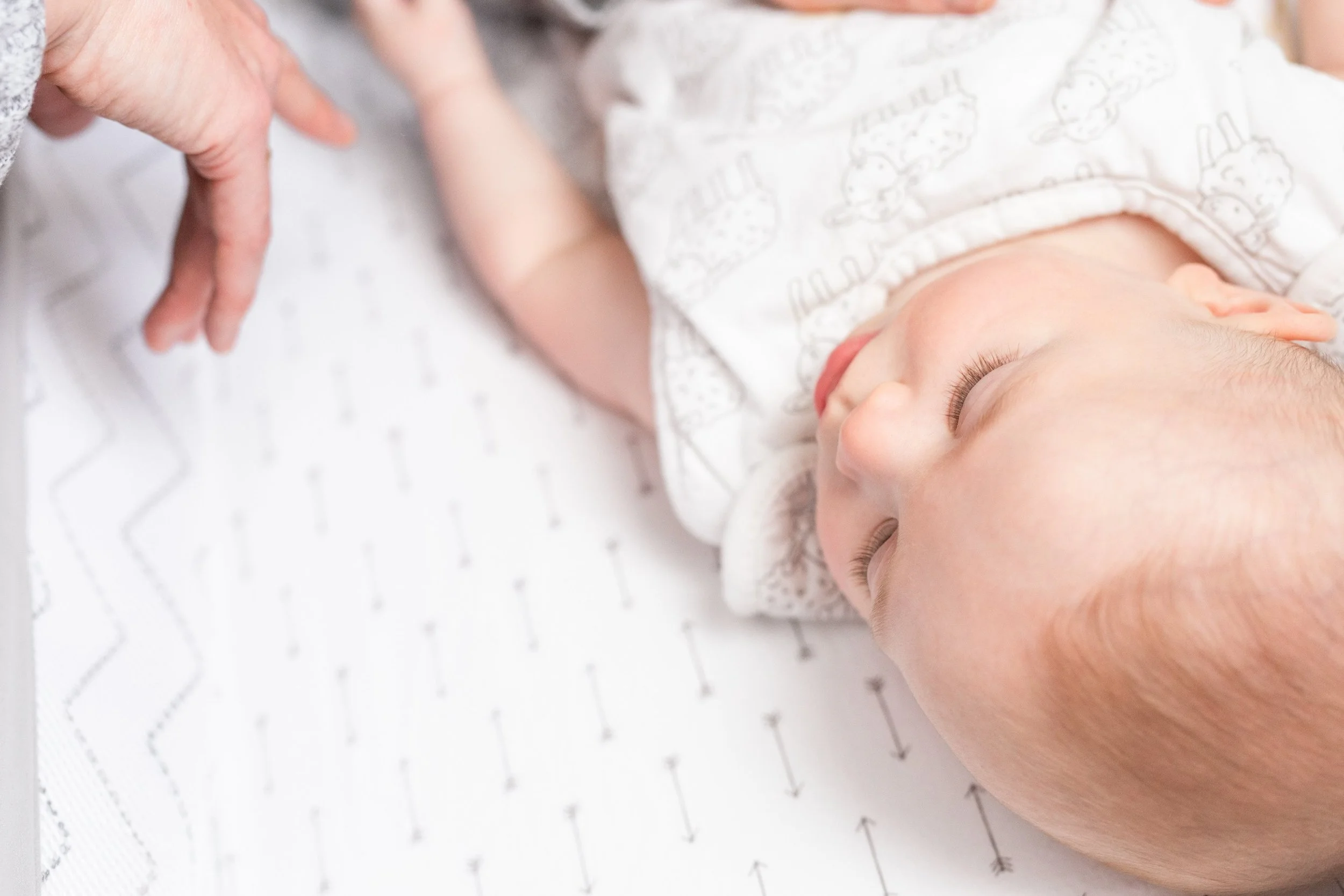"Is there anything I can do about a light sleeper?"
/Is your baby a light sleeper? Does it seem like she wakes up every time you open the fridge? Does he go from sleeping to wide awake when you put him down in his crib?
One of the most frustrating things is when your baby wakes up shortly after they have fallen asleep. Often parents work very hard to get their kiddos to sleep so when they put that time in and then their baby wakes up at the slightest noise or being put down, it feels daunting to have to start back at square one again.
Having a baby who is a light sleeper is a common complaint I hear from parents – they say their baby wakes so easily and then is really difficult to get back to sleep.
Side note: Do you see the problem with that? PARENTS are working hard to get their baby to sleep. What needs to happen instead is the BABY working hard to get themselves to sleep.
Anyways, I’m here to dispel a myth today. Everyone - babies, toddlers, children, adults – are light sleepers. We are all also heavy sleepers. We all move in and out of light and deep sleep throughout the night (you can check out this blog post for more information on that). Some people spend more time in the light stages of sleep before slipping into deeper sleep and some go from light to deep sleep quite quickly. Either way, every time we sleep we go through these cycles – and babies are no different!
The really good restorative sleep that we need happens in the middle of the cycle, this is called NREM sleep. Some people get more NREM sleep than others (i.e spend more time in NREM sleep that is restorative); these are the people that can function on less sleep than others who spend more time in the light stages of sleep.
Okay so what does this have to do with your baby? When people tell me that their baby is a light sleeper, what it actually means is that they likely spend more time in the light sleep stages rather than deep, because the light stages are the easiest to wake up from. Light sleep is where we do our dreaming and are aware of our surroundings – this is when a noise could easily bring us to the surface and be awake.
Another fun fact is that babies have shorter sleep cycles than adults, therefore, they spend almost twice as long in light sleep as adults do. If you are finding that your baby is waking up a lot, it could just be inconvenient timing – there was something external (a noise, being put down, light from outside) that brought them to the surface.
Okay so the question is: what can you do about it?
Well you can’t teach your baby to spend more time in deep sleep but you CAN teach your baby how to independently fall back asleep when they wake up. It really is the best gift you can give both them and your entire family and it’s something that benefits everyone for years to come.
There can be a lot to teaching your baby to sleep independently but the most important element is eliminating sleep props, which is anything external that your baby relies on to fall asleep. Some examples of sleep props are: soothers, rocking motion, feeding to sleep. If a baby is fed to sleep, they come to believe that this is the only way they can fall asleep. Once they wake at the end of the next sleep cycle, they will cry out, which wakes them up further, until you provide that external prop for them (feeding, rocking, soother). As you can imagine, this is a vicious cycle that a lot of families (ours included) can get themselves into.
The babies that people refer to as “good sleepers” have the same sleep cycles as those who wake up crying, they just have the skills to put themselves back to sleep independently. Rather than relying on something external, they wake up, squirm a bit, maybe babble a bit then peacefully put themselves back to sleep.
So, even though you can’t stop your kiddo from waking up at night, you can definitely teach them how to get back to sleep on their own. Once you do this, you can both look forward to full nights of deep, restorative sleep!


